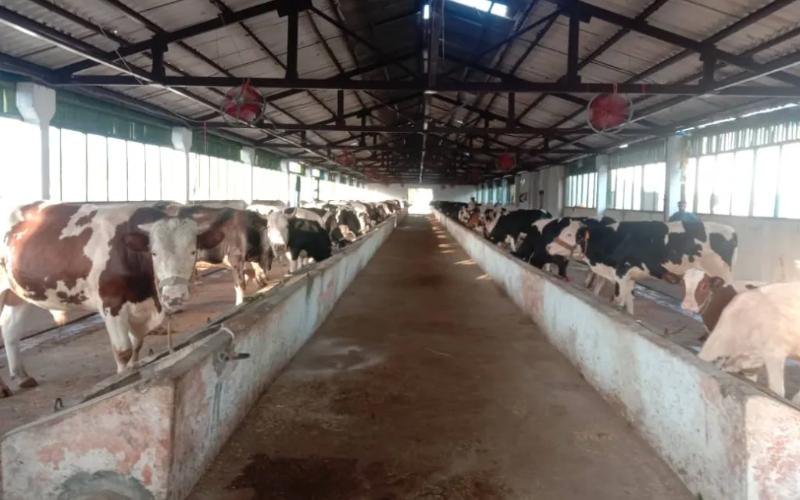The Role of Dairy Processing in Kandahar's Economy
Sourse: pajhwok.com
A deep dive into how dairy processing factories are transforming the economic landscape for farmers in Kandahar by increasing the value of locally-produced milk.

In Kandahar City, dairy processing factories are playing a crucial role in boosting the economic conditions of livestock farmers. Officials report the collection of tens of thousands of liters of milk daily, sourced from local farmers. However, they argue that to increase the earning potential for these farmers, tariffs on imported powdered milk should be increased. Kandahar, primarily dependent on agriculture and livestock, has seen significant economic benefits due to the presence of these factories.
Nik Mohammad, a farmer from Manara, highlights that milk is his family's main income source, emphasizing how local factories have added value to their products. Similar sentiments are echoed by Bakht Mohammad and Amena, who both appreciate the fair pricing and economic boost that have come from selling their milk to factories, as opposed to the local village shops that previously offered low prices.
According to Hayat Masoom, operations manager at Milko factory, 55,000 liters of milk are collected daily from 6,500 farmers, generating more than 1.5 million Afghanis. This supports the production of 38 different dairy products, previously imported. Masoom also notes a shift from opium cultivation to dairy farming in Helmand, facilitated by organizations providing cows to families to boost income.
Haqmal, from the Agriculture and Livestock Department, states that large and small farms supply 12,000 liters of milk daily, most of which goes to dairy factories. With two large processing plants, Kandahar has become less reliant on foreign imports, providing a sustainable local economy base. The department has further plans to expand milk supply to new factories in Kabul, enhancing the economic prospects of many farmers.
Nik Mohammad, a farmer from Manara, highlights that milk is his family's main income source, emphasizing how local factories have added value to their products. Similar sentiments are echoed by Bakht Mohammad and Amena, who both appreciate the fair pricing and economic boost that have come from selling their milk to factories, as opposed to the local village shops that previously offered low prices.
According to Hayat Masoom, operations manager at Milko factory, 55,000 liters of milk are collected daily from 6,500 farmers, generating more than 1.5 million Afghanis. This supports the production of 38 different dairy products, previously imported. Masoom also notes a shift from opium cultivation to dairy farming in Helmand, facilitated by organizations providing cows to families to boost income.
Haqmal, from the Agriculture and Livestock Department, states that large and small farms supply 12,000 liters of milk daily, most of which goes to dairy factories. With two large processing plants, Kandahar has become less reliant on foreign imports, providing a sustainable local economy base. The department has further plans to expand milk supply to new factories in Kabul, enhancing the economic prospects of many farmers.
Key News of the Week










